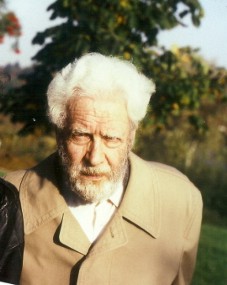|

|
Despite his lifelong preoccupation with Kant`s philosophy, Reich
was far from sharing in any Kant orthodoxy. The comprehensive
historical knowledge of this great scholar and his precise
understanding of the significant texts of the past needed to
fear no comparison. If he, therefore, came to the conclusion,
on the basis of his critical separation of the untenable from
the philosophically promising in the history of philosophical
thought, that it was Kant`s philosophy which most deserved to
be analysed, explained, and defended, this philosophy-historical
option was grounded in an entirely contemporary interest in
truth and in the capacity of knowledge to have ultimate grounds.
It was thus far from the the preference of the historian for
particular epochs and from a self-sufficient philological
hermeneutics. Reich believed that Kant had landed upon solid
ground capable of further development, especially with respect
to his theory of space, his doctrine of judgement, and his
philosophy of law. Reich`s historical studies, however, imbued
with the spirit of critique, were, in the working out of Kantian
|
